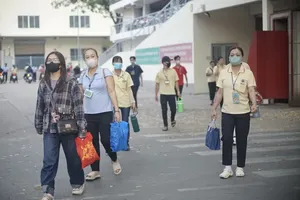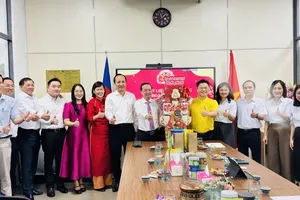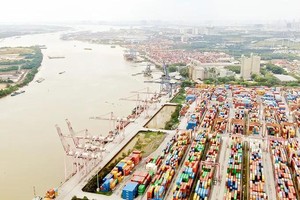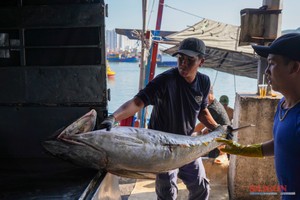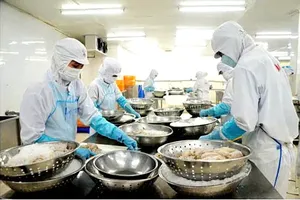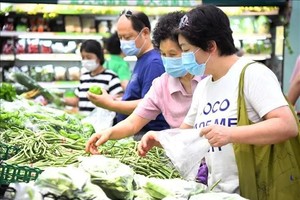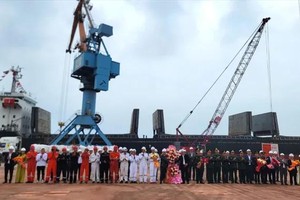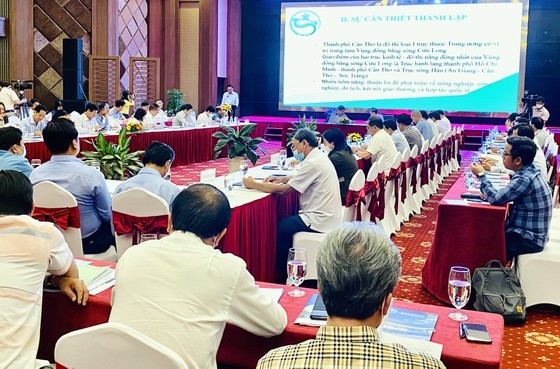 At the conference (Photo: SGGP)
At the conference (Photo: SGGP)
The Center for linking production, processing, and consumption of agricultural products in Can Tho City was established with the expectation that by 2050, it will become the central transport node in large metropolitan areas with smart technology.
The center will be the focal point of the chain of smart production, processing, and consumption centers in the region. In this link chain, about 50 percent - 70 percent of the production processes are done automatically and intelligently.
Speaking at the conference, Chairman of the Can City People's Committee Tran Viet Truong said this is an important conference to get opinions from ministries, sectors, and localities in the region, step by step perfecting the project in the most feasible direction before submitting it to the Government.
The Center aims to contribute to the construction of Can Tho City into the central city of the Mekong Delta region, contributing to the development of the region’s agricultural economy. According to the Resolution 59 of the Politburo on the construction and development of Can Tho City up to 2030, a vision to 2045, and the Resolution 45 of the National Assembly, the Mekong Delta's industry moves forward; thereby, it was allowed to pilot a number of specific regulations and policies for the development of Can Tho City which takes effect from 2022.
The center will become the region’s logistics center. Therefore, the Center has a mission to link the production, processing, and consumption of agricultural products in the Mekong Delta, especially for export. In addition, the Center with a standard cold storage system to be able to preserve exported agricultural products for a certain period of time needs to be able to trade goods two-way between provinces in the Mekong Delta. It is located near international airports and seaports for facilitating exports from Can Tho City.
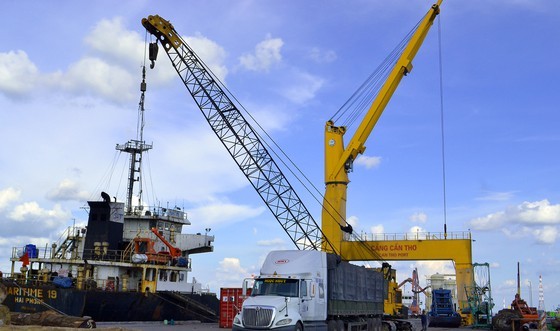 Cai Cui seaport
Cai Cui seaport
In other words, the Center needs to become the head of a wide logistics network in the whole region, in order to improve the quality and reduce the cost of logistics services, the logistics service supply chain is divided into stages to measure cost and time on each stage. Noticeably, warehousing, clearing customs regulations, unloading at the port and transportation are the stages that need to be improved.
According to the project’s roadmap, it will be submitted for establishment approval by the Prime Minister. Investors for the Center's infrastructure will be selected and legal procedures on land will be carried out.
The center’s financial mechanisms will be submitted for approval by competent authorities to support the operation of the center in accordance with Resolution 45/2022/QH15 such as the price compensation mechanism due to land rent exemption and reduction and the financial mechanism for non-tariff zones.
In 2023, as per the project, compensation, resettlement support and transport infrastructure, electricity and water, wastewater treatment and other related wastes must be done. Simultaneously, responsible agencies will consider approval of investment policies or grant investment certificates to enterprises engaged in production and business activities in the center.
Related agencies will determine and evaluate the effectiveness of the Center's operation in 2026, along with the effectiveness of specific policies for the city.
By 2030, the center will become the nucleus of the modern agricultural economy in the Mekong Delta with the function of linking the production, processing, and consumption of agricultural products in the Mekong Delta.
With a vision for 2050, the center will become the central transport node in large metropolitan areas with smart technology adopting smart technology and the focal point of the chain of smart production, processing, and consumption centers in the Mekong Delta region. In this linked chain, about 50 percent - 70 percent of the products will be processed automatically .
At the conference, leaders of localities such as Ca Mau, Soc Trang, and Long An gave opinions and affirmed the necessity and urgency of implementing the project to meet and solve the output for the fishery, fruit, and rice in the Mekong Delta. In particular, it is necessary to soon clear the channel for the waterway ports to operate including dredging the Dinh An channel and expanding the Can Tho Airport.


